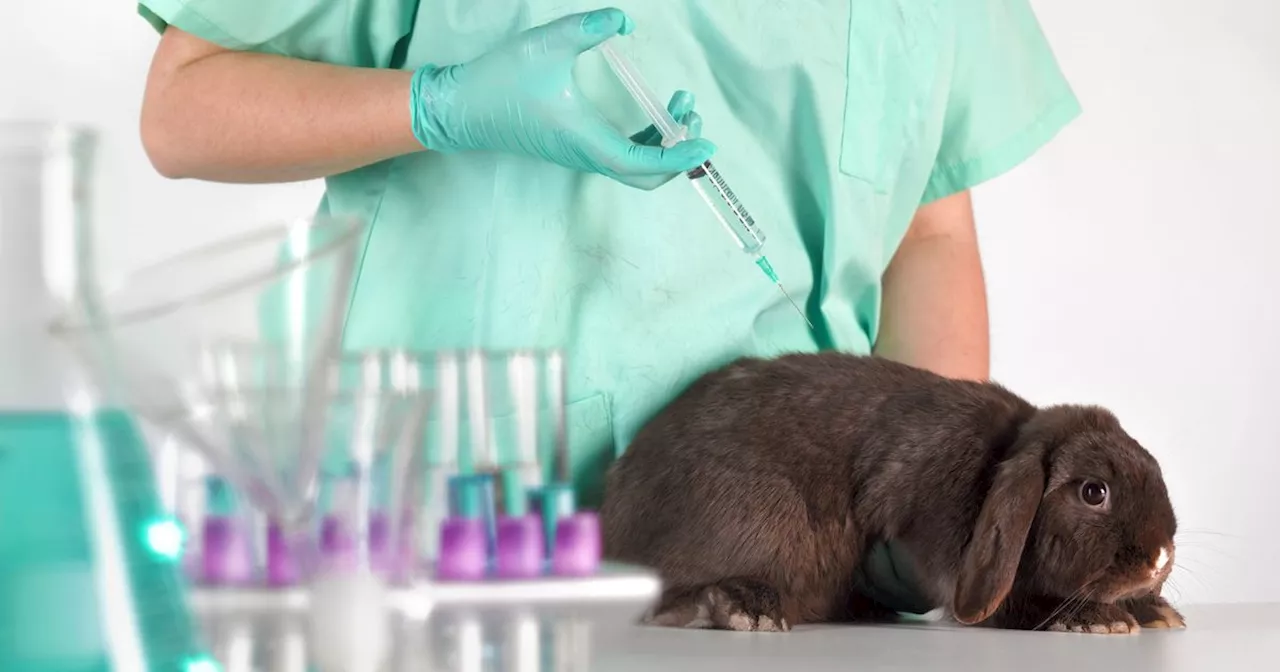Animal testing in Ireland increased significantly in 2023, with over 106,000 live animals used, a 15% rise from the previous year. The number of experiments causing “severe” suffering in animals also jumped by nearly 50% to 19,816, largely due to expanded testing of Botox-type products used in cosmetics.
Dogs and cats were among more than 106,000 live animals used for scientific research and testing last year, representing an increase of around 15 per cent compared to 2022. There was also a significant rise in the number of experiments involving “severe” suffering for the test animals. These rose by almost 50 per cent to 19,816 during 2023. This increase has been attributed to the expansion of testing for Botox-type products, most of which relate to cosmetics.
Around 68,500 animals were used in these tests last year, which are fatal in the vast majority of cases. Mice were the most commonly used animal in scientific research and testing in Ireland last year, accounting for 81 per cent of the 106,639 animals subjected to procedures. Some 1,852 rabbits, 8,440 rats, and 1,118 guinea pigs were also used, according to the latest annual report from the Health Products Regulatory Authority (HPRA). The animals also included 54 dogs, eight cats, 175 ferrets, 24 Syrian hamsters, 26 goats and 3,088 sheep. Three turkeys, 752 pigs, and 1,892 cattle were also among the animals listed in the report. A total of 14,105 of the animals were used for “basic research”, according to the HPRA, while 17,527 were used for translational and applied research. Regulatory use and routine production accounted for 75,109 of the animal uses, which included the testing of Botox-type products. The Irish Anti-Vivisection Society (IAVS), which campaigns against the use of animals in scientific research, described the increase in animal suffering outlined in the latest report as “appalling”
ANIMAL TESTING RESEARCH IRELAND COSMETICS SUFFERING
Ireland Latest News, Ireland Headlines
Similar News:You can also read news stories similar to this one that we have collected from other news sources.
 TikTok Ireland Reports $1 Billion Loss Despite Revenue SurgeTikTok's Irish arm incurred a billion-dollar loss in 2023, despite a near doubling of revenue, due to significant provisions set aside for potential fines from ongoing data protection investigations.
TikTok Ireland Reports $1 Billion Loss Despite Revenue SurgeTikTok's Irish arm incurred a billion-dollar loss in 2023, despite a near doubling of revenue, due to significant provisions set aside for potential fines from ongoing data protection investigations.
Read more »
 Flu Cases Surge in Ireland as Hospitals Brace for Christmas RushIreland is experiencing a significant surge in flu cases, with nearly 1,000 confirmed cases reported in the week ending December 14th. Hospitals are preparing for a potential surge in demand over the Christmas period as people gather in larger numbers.
Flu Cases Surge in Ireland as Hospitals Brace for Christmas RushIreland is experiencing a significant surge in flu cases, with nearly 1,000 confirmed cases reported in the week ending December 14th. Hospitals are preparing for a potential surge in demand over the Christmas period as people gather in larger numbers.
Read more »
 Home Prices Surge in Ireland, New Developments Boost ConstructionA new report reveals that first-time homebuyers in Ireland are paying an average of €88,000 more for a house compared to five years ago. Meanwhile, construction activity is experiencing a significant upswing, with over 60,000 new properties commenced this year, a stark contrast to last year's figures. Other news highlights include a major development project in Belfast, a Cork-born entrepreneur leading a €11 billion London project, and a court ruling in a case involving a failed Irish lender.
Home Prices Surge in Ireland, New Developments Boost ConstructionA new report reveals that first-time homebuyers in Ireland are paying an average of €88,000 more for a house compared to five years ago. Meanwhile, construction activity is experiencing a significant upswing, with over 60,000 new properties commenced this year, a stark contrast to last year's figures. Other news highlights include a major development project in Belfast, a Cork-born entrepreneur leading a €11 billion London project, and a court ruling in a case involving a failed Irish lender.
Read more »
 Ireland Warns of '100-Day Cough' as Whooping Cough Cases SurgeHealth experts in Ireland have issued a warning about the resurgence of whooping cough, also known as pertussis, with hundreds of cases already reported this year. The disease is highly contagious and can persist for up to three months, earning it the nickname '100-day cough'.
Ireland Warns of '100-Day Cough' as Whooping Cough Cases SurgeHealth experts in Ireland have issued a warning about the resurgence of whooping cough, also known as pertussis, with hundreds of cases already reported this year. The disease is highly contagious and can persist for up to three months, earning it the nickname '100-day cough'.
Read more »
 Flu Cases Surge in Ireland; HSE Warns of Potential Hospital CrisisThe number of influenza cases in Ireland has more than doubled in recent weeks, prompting a warning from the HSE that there could be up to 900 flu cases in hospitals by the end of the year. Health officials urge vaccination and emphasize the importance of preventative measures like handwashing and staying home when sick.
Flu Cases Surge in Ireland; HSE Warns of Potential Hospital CrisisThe number of influenza cases in Ireland has more than doubled in recent weeks, prompting a warning from the HSE that there could be up to 900 flu cases in hospitals by the end of the year. Health officials urge vaccination and emphasize the importance of preventative measures like handwashing and staying home when sick.
Read more »
 Ireland Urges Public to Avoid Hospitals Amid Surge in Flu HospitalizationsThe Health Service Executive (HSE) in Ireland is urging the public to avoid hospitals and emergency departments where possible due to a significant rise in flu-related hospitalizations. While the HSE anticipated an increase, the current numbers are exceeding their predictions. The HSE CEO emphasizes the ongoing pressure on the healthcare system and encourages the use of alternative healthcare services like GPs, GP Out of Hours, injury units, and pharmacies for non-emergency care. Emergency departments remain available for seriously ill patients, who are treated based on severity.
Ireland Urges Public to Avoid Hospitals Amid Surge in Flu HospitalizationsThe Health Service Executive (HSE) in Ireland is urging the public to avoid hospitals and emergency departments where possible due to a significant rise in flu-related hospitalizations. While the HSE anticipated an increase, the current numbers are exceeding their predictions. The HSE CEO emphasizes the ongoing pressure on the healthcare system and encourages the use of alternative healthcare services like GPs, GP Out of Hours, injury units, and pharmacies for non-emergency care. Emergency departments remain available for seriously ill patients, who are treated based on severity.
Read more »
